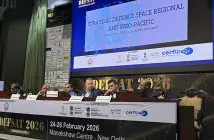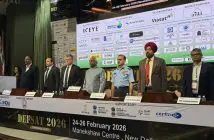
The first space launch from UK soil is planned to take place from Spaceport Cornwall later this year. This historic moment marks a new era for space exploration; enabling the UK to lay the foundations for responsible launch of small satellites into Low Earth Orbit (LEO).
The ability to launch small satellites brings major opportunities to the UK economy, as well as enabling vital Earth Observation and Environmental Intelligence gathering – sparking innovation in downstream applications and benefiting life on earth.
Historically, the impact of space operations has not been widely understood or publicised, and Spaceport Cornwall, along with launch partners Virgin Orbit, are seeking to change this through a detailed assessment of activities outlined in two public reports, the Assessment of Environmental Effects and a Carbon Life Cycle Analysis.
To launch, Spaceport Cornwall must have a spaceport operator licence and Virgin Orbit must be issued a launch operator licence by the UK Civil Aviation Authority (CAA). These UK processes build upon very similar processes that have already been successfully completed in the USA by Virgin Orbit multiple times.
As part of their licence applications, both have submitted an Assessment of Environmental Effects. In this assessment, which is specific to the impact of launch, Spaceport Cornwall and Virgin Orbit have outlined the expected environmental effects and demonstrated the measures to offset emissions – followed by electrification of Spaceport operations in the next five years to reach carbon neutrality.
Today the Assessment of Environmental Effects has been released for public consultation. In their joint ambitions to launch responsibly and create open conversations about impact and actions, Spaceport Cornwall have widened the scope of the AEE and commissioned a Carbon Life Cycle Report, which has
been undertaken by the University of Exeter, who are world-leading in their cutting-edge research into the problems of, and solutions to, environmental change.
This publicly available report has performed a Life Cycle Analysis – considering the impact of the wider activity around launch and on-site at Spaceport Cornwall. This includes a holistic assessment of the GHG emissions of planned launches from Spaceport Cornwall between 2022, when the first launch mission is expected, and 2027.
In particular, it offers further comprehensive coverage of emissions from ancillary and upstream supply chain activities: including transit flights of hardware and personnel from the USA to the UK; the manufacturing processes of the LauncherOne rocket and impacts of radiative forcing in the upper atmosphere – an emerging area of active study in the global scientific community.
By committing to calculating the wider impacts of launch in the UK, Spaceport Cornwall can identify and focus their Road to Net Zero Plan on the five key areas of impact: Carbon; Marine Environment; Biodiversity; On-site Operations; Space Debris.
The targets for tackling the impacts will be reached through R&D and engagement. Through their new Centre for Space Technologies, Spaceport Cornwall will conduct world-leading research into developing cleaner fuels, finding more sustainable satellite materials and launch methods, and supporting debris collection on earth and in space. To ensure they will not add to current debris issues in LEO, all satellites and spacecraft will be licensed by the CAA and they will work to progress an ethical launch framework.
Research will also be conducted into the effect of debris on the marine environment, with the focus on setting a new industry standard for analysis of impact. While Virgin Orbit’s launch activities have been found to have no adverse effect on biodiversity within the existing airport master plan, Spaceport
Cornwall has committed to a 10% biodiversity gain within the Spaceport Development Zone.
Further to this, the launch of Kernow Sat-1, the G7 Legacy funded community satellite, will be key to increasing biodiversity monitoring within the region, and the data collected will support seagrass restoration and kelp forest installation around the coast of Cornwall.
Melissa Thorpe, Head of Spaceport Cornwall: “Spaceport Cornwall is on a mission to become the World’s most responsible and ethical gateway to space and the first step towards this, is understanding our impact and being transparent about that impact. This is why the AEE coupled with our Life Cycle Analysis is a major milestone, because now we can move beyond offsetting, and invest in areas to bring the impacts down completely. This is just the beginning and we hope to set the bar for responsible launch around the world.”
Cllr Linda Taylor, Leader of Cornwall Council: “I welcome this comprehensive report from the University of Exeter, which clearly sets out the work already being undertaken by Spaceport Cornwall to analyse the impacts of spaceport technology, mitigate its effects and achieve their goal of carbon neutrality by 2030 and net zero beyond that.”
Dan Hart, CEO of Virgin Orbit: “Satellites have an important and beneficial impact on humanity’s ability to study, monitor, and protect our climate, keep our world safe, and help save critical resources. At Virgin Orbit, we designed our system to reduce the overall environmental footprint of space launch by upcycling existing infrastructure. Ground launched systems, typically launched from wildlife preserves, impact the environment with soot, smoke and acoustic energy. Given that our rocket flight occurs many miles from land and high in the atmosphere, we can perform space launch while preserving the surrounding environment at the spaceport. Working with forward-leaning partners like Spaceport Cornwall, we will continue to investigate ways to further reduce emissions as we continue to deliver meaningful, purpose-driven missions to orbit.”
Matthew Archer, Director of Commercial Spaceflight for the UK Space Agency, added: “Satellite data is one of the most powerful tools in the fight against climate change, supports critical infrastructure and connects people and businesses across the world. We are committed to creating a safe and sustainable satellite launch market, and we welcome the CAA’s consultation and Spaceport Cornwall’s comprehensive work on environmental effects. These are positive steps towards the UK’s first satellite launch this year.”





